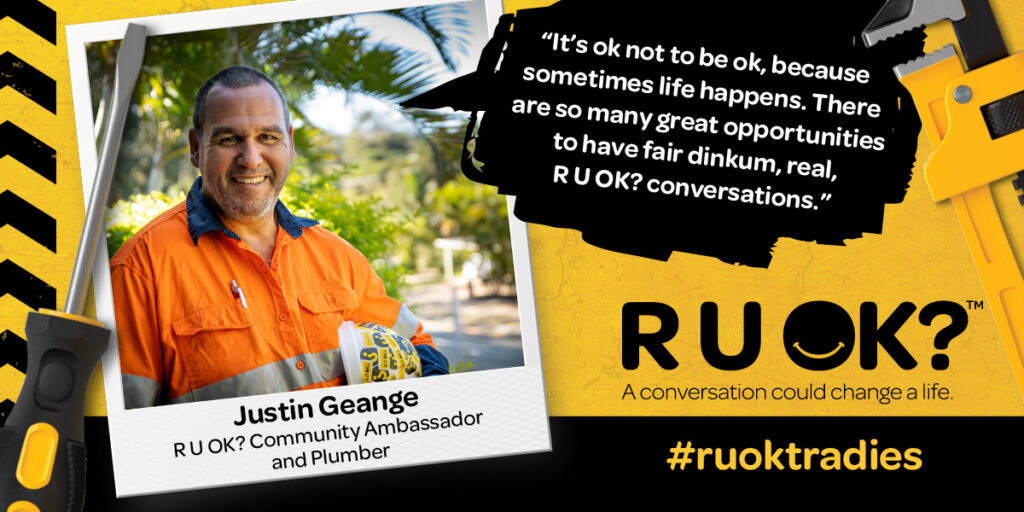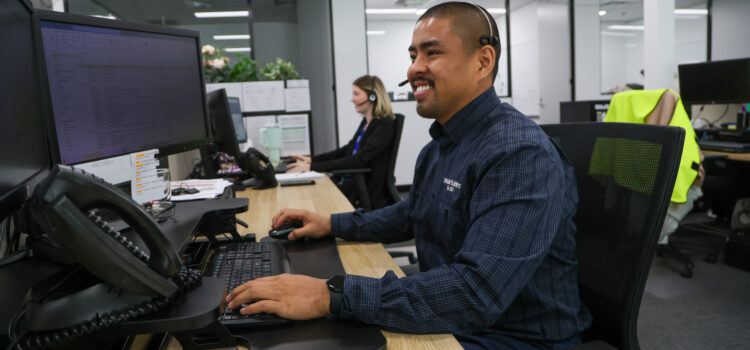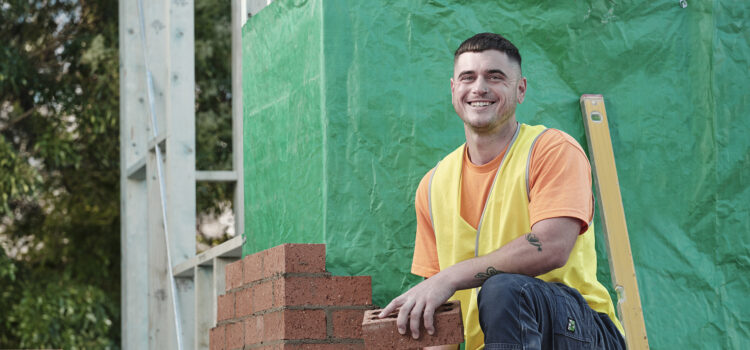Building a Supportive Workplace Culture for Tradespeople.

As we approach R U OK? Day on Thursday, September 12 and the lead-up to National Mental Health Month in October we are raising awareness of the resources available for the mental well-being of our tradespeople.
The team at Master Builders Education and Apprenticeships, are dedicated to fostering a supportive and open environment for our students and apprentices. They are specifically trained in Mental Health First Aid and are ready to assist any student and apprentice with any issues they may be facing.
It’s essential to acknowledge that mental health issues can affect anyone, regardless of age, gender, ethnicity or experience. The construction industry is uniquely challenging with physically demanding tasks, and the pressures of meeting project deadlines. This can take a toll on mental well-being.
Additionally, the stigma attached to mental health can prevent many from seeking the help they need. Many tradespeople feel they must “tough it out” and may be reluctant to discuss their struggles.
By raising awareness, we are working to change the narrative for the industry. It’s okay to talk about mental health, and it’s okay to ask for help. Breaking the stigma starts with open conversations and fostering a supportive environment.
How to identify the signs
Almost 1 in 2 Australians will experience a mental health disorder at some point in life. It’s important to learn the signs that could hint that a friend or family member is struggling with their mental health. A mental health disorder may start out as subtle changes to a person’s feelings, thinking and behaviour. If they have ongoing and significant changes, it could be a sign that they are developing a mental health disorder. If something doesn’t seem ‘quite right’, it’s important to have a conversation about getting help. Don’t ignore thoughts or threats of suicide — seek help immediately if someone talks about suicidal thoughts or is engaging in high-risk activities.
To help you identify the signs so that you can help your workmates, the Master Builders has a 1 hour online lesson. You can enrol into the Mental Health in Construction course at anytime and participate from the privacy of your own home.
For in-depth training, and to become a Mental Health First Aider, we recommend Mental Health First Aid Australia courses. Go to the website.
Mates in Construction also have mental health training specifically for the building and construction industry.
Self-care tips
The MensLine Australia website has some really helpful Self-care tools that can assist you in developing your personal skills to better manage your current situation. Each worksheet has an exercise that will take approximately 10-30 minutes to complete and some may require regular practice.
These include:
- Goal setting
- Problem-solving
- Better sleeping
- Progressive relaxation
- Setting boundaries
Resources and Helplines
Knowing where to turn for help is vital. Here are some resources and helplines available for those who need support:
- Lifeline: 13 11 14 – 24/7 crisis support and suicide prevention services.
- Beyond Blue: 1300 22 4636 – Support for anxiety, depression, and suicide prevention.
- MensLine Australia: 1300 78 99 78 – 24/7 support for men with family and relationship concerns.
- MATES in Construction: 1300 642 111 – 24/7 support for construction workers.
R U OK? Day Thursday, September 12, 2024
By promoting awareness and encouraging open conversations, we can ensure that every tradesperson feels supported and valued. Spot the signs that someone on your work site may be struggling, and have a meaningful R U OK? conversation to help them find support if needed.
Let’s build a future where mental well-being is a cornerstone of our industry. Speak up, reach out, and support one another to help build a workplace culture where mental health is openly discussed, respected and prioritised. Include the conversation as part of your toolbox talks on a regular basis. For access to free resources to promote R U OK? Day go to the website.
Remember, it’s okay to ask, “Are you okay?” and it’s okay to say, “I need help.”


